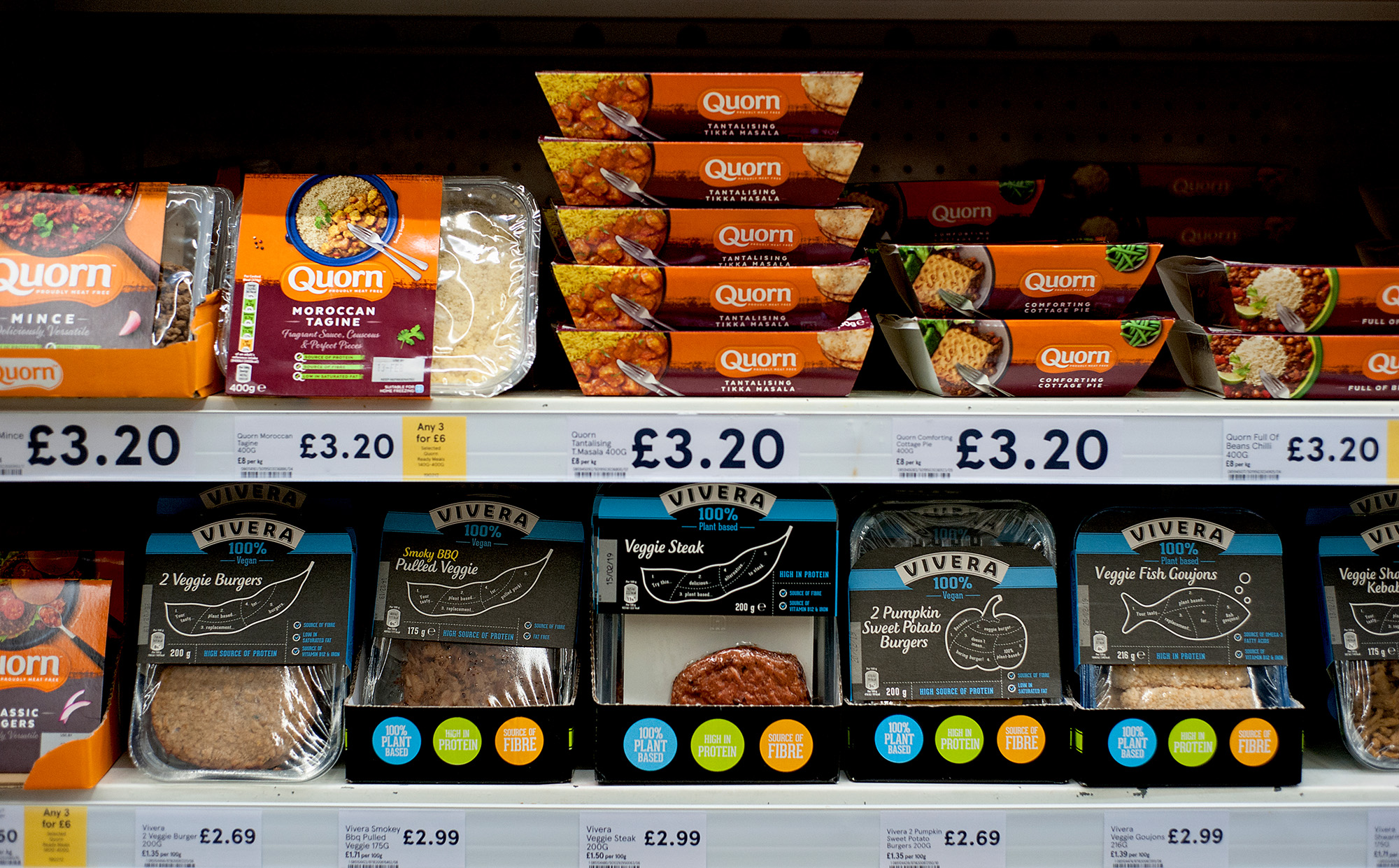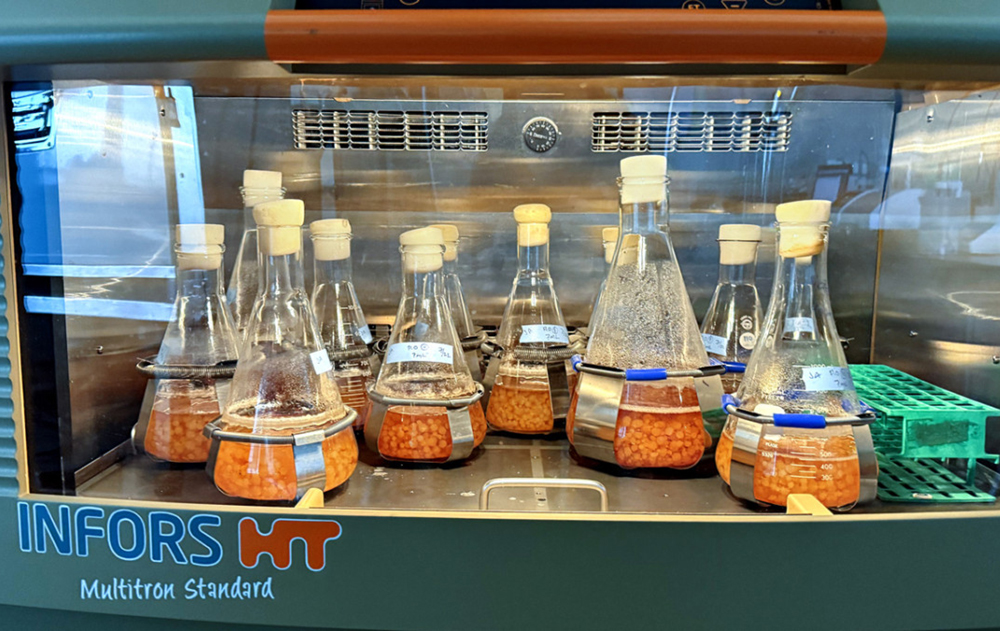

FPP Amsterdam 2025 Speaker Interview: Cutting through the ‘ultra-processed’ noise – and why the UK is quietly getting alt protein right
Chris Bryant isn’t trying to sell you on a slogan. The Executive Director of Bryant Research and advisor to the UK’s Alternative Proteins Association wants the debate around what we eat to be guided by evidence, not ideology – and he’s using data to dismantle one of food policy’s most persistent myths
The argument over what we should eat has rarely been louder – or murkier. For Chris Bryant, Executive Director of Bryant Research and Research Advisor to the UK’s Alternative Proteins Association (APA), the way out isn’t another slogan or a better marketing campaign. It’s evidence. Through his research on consumer attitudes, nutrition, and the societal impacts of alternative proteins, Bryant has become one of the most consistent – and often most outspoken – voices arguing for science over spin.

Bryant doesn’t come to this field from a single entry point. His motivation, he says, comes from the intersection of ethics, sustainability, and public health – the overlap where climate change, antimicrobial resistance, and non-communicable diseases all meet. “There are so many interconnected issues,” he explains. “Reducing our dependence on industrial animal agriculture is one of the most effective ways to address all of them.”
It’s this systems-level view that has made Bryant a respected figure among scientists and policymakers alike. His work sits at the uncomfortable junction between nutrition science, behavioral economics, and politics – where facts collide with ideology. And few topics illustrate that tension better than the one he’s spent much of this year trying to reframe: the so-called ‘ultra-processed food’ debate.

The myth that stuck
Bryant has called the ‘ultra-processed’ label one of the most damaging – and misunderstood – narratives in modern food policy. He traces its rise to a mix of public confusion and industry opportunism. In his telling, it’s no coincidence that the loudest voices weaponizing the term have ties to conventional meat producers. “People might remember the Center for Consumer Freedom,” he says, “and its paid campaigns linking plant-based meat to junk food. They spent millions creating that association. It’s been reinforced ever since by this catch-all idea of ‘ultra-processed foods’, which lumps plant-based meat in with sweets, chocolate, and cola.”
The problem, he adds, isn’t that processing levels are meaningless – it’s that they’ve been treated as a substitute for nutrition. “You end up with a system that puts protein powder and candy in the same box, and red meat and vegetables in another, as if those pairs are somehow equivalent. Clearly, that’s absurd. But the narrative stuck because it was simple and emotionally charged. It made people feel like they were being smart, skeptical consumers.”
For Bryant, the real frustration isn’t public confusion – it’s how much nuance has been lost inside institutions that should know better. “There’s a lot of unscientific discussion even within what’s presented as scientific conversation,” he says. “When you have people whose jobs or investments depend on animal agriculture continuing or expanding in its current form – and those people have political influence – it’s predictable that talking points will be manufactured to defend that position.”
“Processing isn’t the problem – bad nutrition is. Fortification is how you fix that”
He’s seen those talking points firsthand in forums and debates, including a recent exchange on the Dublin Declaration. “It’s a clear case of pseudoscience,” he says, “written in a deliberately misleading way to suggest certain conclusions without explicitly stating them.”
The Dublin Declaration – signed by hundreds of academics in 2022 – has become something of a litmus test in the livestock debate. Bryant describes it as a masterclass in implication: a document that implies humans need meat for health and that we can meet environmental goals without reducing livestock consumption, without ever quite saying either outright. When researchers later surveyed readers about what they took away from the declaration, 80% said they believed it argued precisely those points. “So, the defense that ‘we never said that’ falls apart,” Bryant says. “Because clearly those messages are being communicated, whether intentionally or not.”
The bigger problem, he argues, isn’t just the message – it’s the lack of transparency about where it comes from. “Having industry links doesn’t automatically mean research is wrong,” he says. “But when those links are hidden, or denied, that’s a serious problem. Disclosure is essential. If conflicts of interest are clearly stated, readers can judge the work accordingly. Without that, you’re not doing science – you’re doing PR.”

The health case that’s been drowned out
Despite the misinformation, Bryant insists the evidence for plant-based alternatives is robust. “When you compare plant-based meat with conventional meat, the results are remarkably consistent,” he says. “Plant-based meats tend to have lower calorie density, higher fiber, and lower saturated fat – all of which are linked to reduced risk of heart disease. Several studies have shown lower markers for heart disease risk when people eat plant-based meat instead of animal meat.”
Even protein content, once considered a weakness, is now comparable – or better. “I used to say protein was a relative disadvantage,” he admits. “But when you look at the latest options, that’s no longer true. Some plant-based sausages and burgers actually have more protein than their meat counterparts.”
Bryant also believes the industry has failed to communicate one of its strongest advantages: the ability to improve foods through processing. “Fortification is a perfect example,” he says. “Adding iron or vitamin B12 makes products healthier, not worse. But we’ve allowed this idea to take hold that processing is inherently bad.”
In the UK, there’s even a regulatory irony at play. “Products labeled as organic can’t be fortified,” he says. “So, people assume organic equals healthier, even when it’s missing key nutrients. It’s a perfect example of how the conversation has gone backwards.”
If the goal is better nutrition, he argues, then the how matters less than the what. “In reality, we can often make foods healthier through processing. Plant-based meats are a perfect example.”
From myth-busting to policymaking
So, if the science is clear, why isn’t the policy? Bryant thinks part of the answer is psychological. “Institutions generally understand that it’s not as simple as ‘ultra-processed equals bad’, but institutions are made up of individuals. And individuals are influenced by the same headlines as everyone else.”
He can even imagine a future where plant-based meat becomes a legitimate public health tool. “You could easily see an NHS program where plant-based meat replaces conventional meat in meal plans,” he says. “Follow this for eight weeks, and you’ll lose weight, improve your markers, lower cholesterol. The data support that. But to get something like that implemented, you need buy-in from decision-makers, many of whom are still shaped by pop-science narratives.”
That’s why he sees the UK’s recent regulatory moves as so significant. While the European Commission has stumbled over labeling restrictions, the UK has quietly been taking a more pragmatic, science-led approach. The cultivated meat regulatory sandbox – the first in Europe – has already been followed by plans for a precision fermentation innovation hub. Together, they signal not only openness to alternative protein innovation but also a willingness to engage scientifically rather than politically.
“Three to five years ago, there was huge uncertainty around regulation,” Bryant says. “Would these products ever be approved, and if so, when? That picture is changing fast.”
The sandbox itself isn’t glamorous – it’s essentially a structured dialogue between regulators and experts – but over time it builds shared understanding. “That’s how real progress happens,” he says. “You get regulators and scientists in the same room, talking through problems before they become problems.”
He credits the Food Standards Agency (FSA) for its new attitude. “They used to be quite cautious and not very open to pre-application dialog,” he says. “Now they’re encouraging it. That kind of proactive, consultative approach helps innovation move faster and more safely.”
“The UK didn’t spend big; it learned fast. That’s what moved the needle”
Even the relatively small investments – like the £3 million sandbox funding – can have outsized effects. “These aren’t big numbers in government terms, but they show intent,” he says. “They bring the right people together, and they create an environment where regulators, scientists, and businesses can build trust.”
Other governments, he adds, should take note. “It doesn’t require massive budgets or radical policy changes. It’s about creating the right conditions – open communication, early collaboration, and a willingness to engage with the science. The UK has shown that a modest, evidence-based approach can go a long way.”

Price parity changes everything
As for what happens next, Bryant is quietly optimistic. The past two years have been tough for the sector, with slowing sales and skeptical headlines, but he sees structural signs of recovery. “Inflation hit everyone, but animal products have seen the steepest increases,” he says. “Between 2021 and 2024, inflation was around 8% for plant-based meat and about 15% for plant-based milk – but roughly 50% per kilo for chicken and 55% per liter for cow’s milk. That’s a huge difference.”
Across Europe, that price gap is already changing behavior. “We’re now seeing examples where the average shopping basket is actually cheaper when you buy plant-based,” he says. “It’s happened in the Netherlands, in Germany, and just recently in the UK. You don’t need to care about the environment or animal welfare to be motivated by saving 15% on your weekly shop.”
For all the noise about values, Bryant believes economics will be the deciding factor. “Price parity – and increasingly, price advantage – is the clearest signal that this transition is working,” he says. “Because once plant-based becomes the rational default, everything else follows.”
If he could change one misconception overnight, it would still be the same one: the ultra-processed myth. “It’s been cleverly weaponized by groups like the Center for Consumer Freedom on behalf of the livestock industry,” he says. “I hope we’ll look back on this period and think, ‘Remember when everyone was worried about ultra-processed foods?’ – and realize how naive that was.”
For now, he’s focused on the long game – turning data into understanding, and understanding into policy. “The science is already there,” he says. “The challenge is making sure people see it for what it is.”
Chris Bryant is one of more than 100 speakers taking to the stage at The Future of Protein Production Amsterdam on 29/30 October 2025. To join him and more than 1,000 other attendees, book your conference ticket today and use the code, 'PPTI10', for an extra 10% discount on the current rate. Click here
If you have any questions or would like to get in touch with us, please email info@futureofproteinproduction.com

.png)






